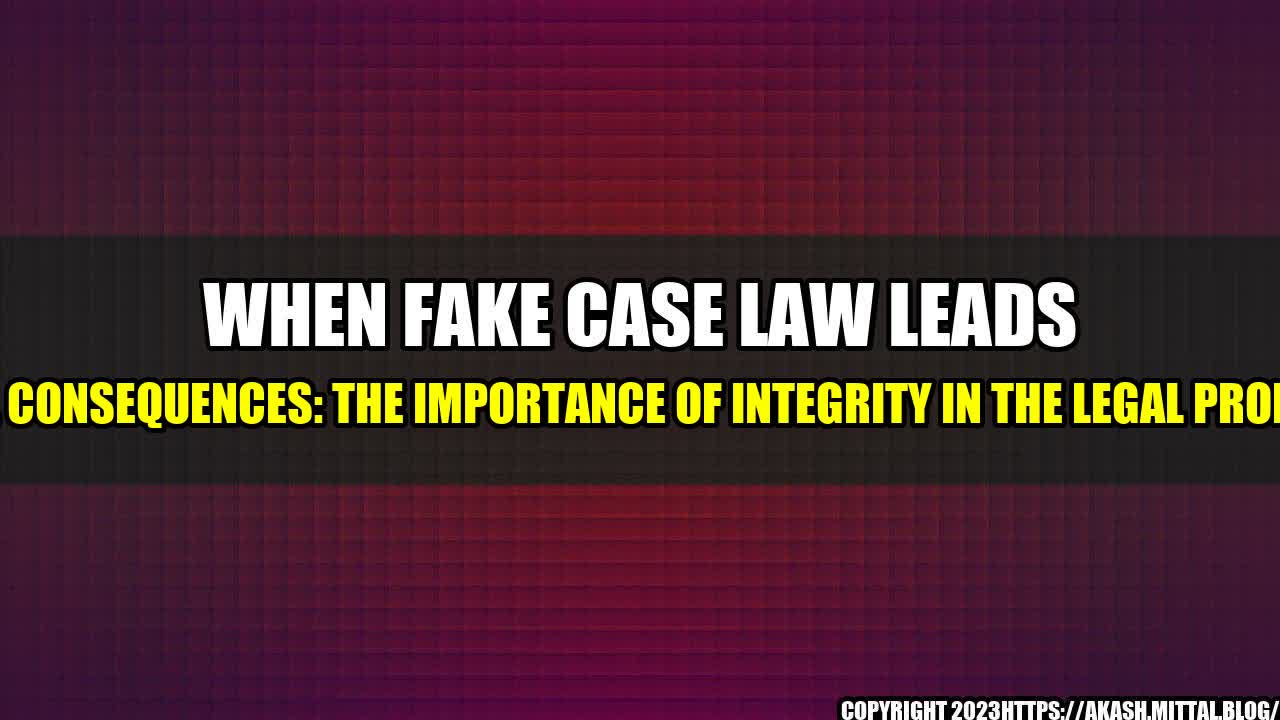When Fake Case Law Leads to Real Consequences

As a society, we place a high degree of trust in our legal system. We depend on judges, lawyers, and other legal professionals to help us uphold justice and protect our rights. But what happens when that trust is violated?
The Story
A lawyer was recently forced to apologize after ChatGPT made up case law in an affidavit he submitted. The lawyer had used the fake case law in an attempt to bolster his client's case, but when the deception was discovered, the lawyer faced serious consequences.
Not only did the lawyer put his own reputation on the line, but he also jeopardized the credibility of the entire legal system. The use of fake case law undermines the integrity of the law and can lead to unfair outcomes.
The Consequences
Using fake case law isn't just an ethical breach – it can also have legal consequences. In some cases, it could even constitute legal malpractice. For example, if a lawyer relies on fake case law to persuade a judge or jury, they could be guilty of misrepresenting the law.
Furthermore, the use of fake case law could lead to a ruling based on a false premise. This is particularly dangerous when it comes to legal precedent, as it can set a dangerous precedent that future judges and lawyers may rely on.
In the end, using fake case law not only undermines the integrity of the legal system, but it also threatens the fundamental principles of justice and fairness that our legal system is founded upon.
The Importance of Integrity
Integrity is a fundamental aspect of the legal profession. Legal professionals are entrusted with upholding the principles of justice and fairness, and that means adhering to strict ethical standards.
Legal professionals must be truthful and honest in all of their dealings. They must uphold the law and respect the rights of all individuals, regardless of their personal beliefs or biases. By doing so, they not only maintain the integrity of the legal profession, but they also help ensure that justice is served.
Ultimately, the legal system is only effective if it is seen as fair and just by all individuals. When lawyers use fake case law to try and gain an unfair advantage, they undermine the very principles that make our legal system work.
Conclusion
- Using fake case law is a breach of ethics and can have serious legal consequences.
- The use of fake case law undermines the integrity of the legal system and can lead to unfair outcomes.
- Integrity is a fundamental aspect of the legal profession, and legal professionals must uphold the principles of justice and fairness at all times.

Curated by Team Akash.Mittal.Blog
Share on Twitter Share on LinkedIn